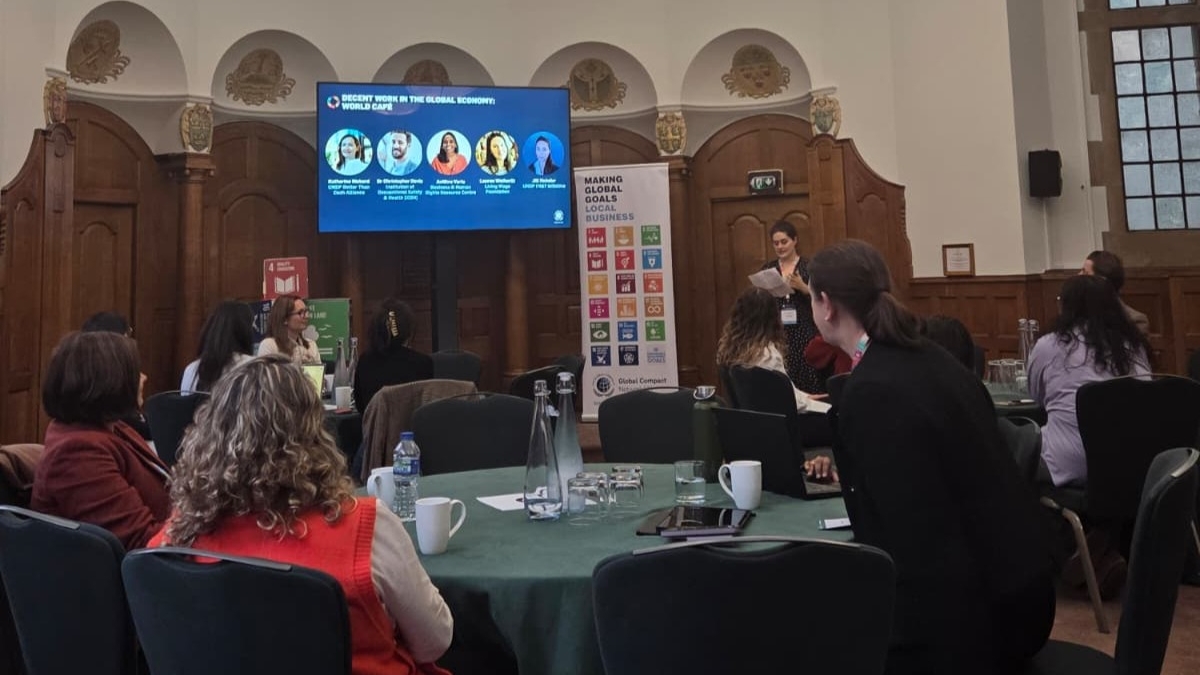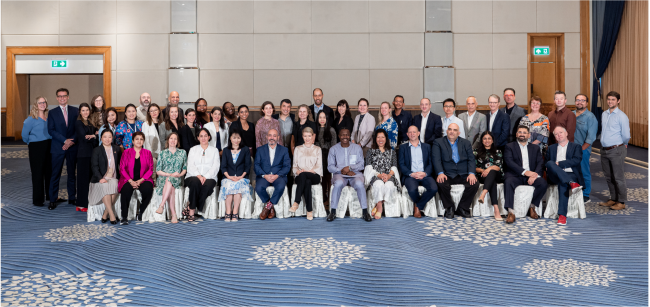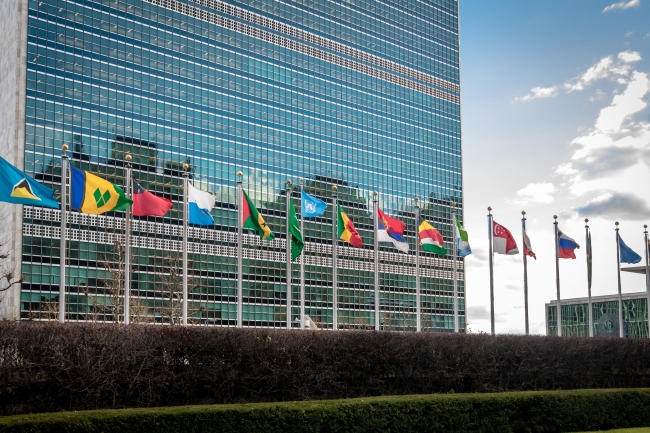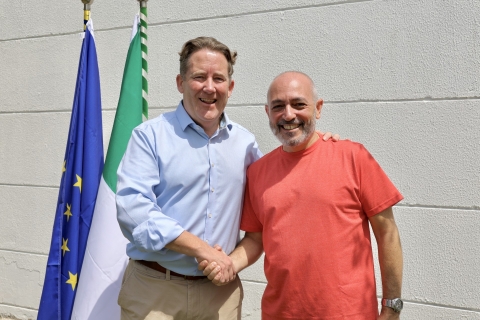From Profit to People: How Digital Finance is Reshaping the Fight Against Labour Exploitation
14 OCTOBER, 2025

In a world of low-cost goods and fast food, the reality of modern slavery and labour exploitation can be easy to overlook. But these injustices live close to home, often in plain sight.
Globalization has created complex international supply chains that often prioritize the cheapest sources of materials and labour – and are incredibly difficult to monitor. Growing demand for cheap consumer goods, and pressure to keep prices low has weakened oversight over working conditions and payment.
Recent estimates from the International Labour Organization, Walk Free, and International Organization on Migration indicate that there are 50 million people in modern slavery – an increase of 10 million since 2016. This includes 28 million in forced labour.
A Shifting Landscape
Although the demand for cheap consumer products shows no signs of abating, geopolitical disruptions, regulatory changes, and consumers’ increasing demand for responsible practices are reshaping corporate strategy. This changing global business landscape is making it imperative for companies to integrate sustainability principles – not just as risk-management or compliance measures, but as core drivers of market share and investment.
Digital finance is creating new pathways for businesses to incorporate social sustainability into their business models. Digital payments formalize workers’ employment and make value chains easier to monitor for human rights and other abuses. Digital finance can also provide workers with access to bank accounts, affordable credit, insurance, and other financial services that were previously out of reach.
In Malawi for example, digital payments facilitated by the Better than Cash Alliance are making it more secure for tea growers to return home from work without fear of being attacked for their cash, and giving them greater autonomy over their finances. It is also saving the tea industry $200,000 annually in cash-processing costs.
Forward-thinking Business Leaders are Coming Together
Across the private sector, a new generation of business leaders is recognizing that doing good for people and the planet is also good for business.
That’s the spirit of the 2025 UN Global Compact Network Summit in London. Titled “Unlocking Competitive Advantage Through ESG,” the Summit is convening business leaders, policymakers, and sustainability experts to embed social and environmental sustainability into business decision making.
Among those advocating for change at this event are the Better Than Cash Alliance and the Finance Against Slavery and Trafficking (FAST) Initiative – both hosted by the United Nations Development Programme (UNDP) – which take a human rights-based approach to digital finance – leveraging technology to drive business performance that benefits workers and consumers.
Finance Against Slavery and Trafficking (FAST) – Mobilizing Financial Actors to Address Modern Slavery and Human Trafficking
Modern slavery and human trafficking affect over 50 million people and generate more than US$236 billion in illicit profits annually. FAST engages business and finance leaders in identifying the factors contributing to modern slavery within value chains, and finding ways to address it.
Heinous crimes like slavery and trafficking thrive in opaque financial systems where cash transactions conceal illicit activities, making it difficult to detect and prevent exploitation. Digital finance can disrupt these flows: traceable, cashless transactions monitored by regulated payment providers within formal payroll and supplier systems help to identify suspicious patterns.
Regulatory expectations are tightening. For example, in the UK, the Modern Slavery Act now requires large companies to publish annual statements on steps taken to address modern slavery.
Across the European Union, the Corporate Sustainability Due Diligence Directive mandates that businesses to identify adverse human-rights and environmental impacts, and remediate them.
The FAST Initiative is working to turn these new regulations into practical guidance that helps firms manage risk and grow responsibly.
FAST partners with governments, financial institutions, and payment providers to strengthen traceable digital payment ecosystems and disrupt illicit financial flows. One example of this work is FAST’s work in the Western Balkans, which is using data to link payment-system reforms with transaction monitoring – strengthening cross-border investigations and protecting communities at risk of human trafficking.
Better Than Cash Alliance – Transitioning Economies from Cash to Responsible Digital Payments
Like FAST, the Better Than Cash Alliance works to ensure that digital finance upholds human rights, fair pay, and economic opportunity. Bringing together UN agencies, governments and private companies, the Alliance focuses on those who are left out of formal payment systems: workers who are paid in cash and therefore excluded from the security that digital payment can bring.
By helping businesses shift from cash to digital wages, the Alliance is creating fairer, more transparent pay systems and opening access to savings, credit, and insurance. This builds both financial inclusion and resilience, giving families greater control over their futures.
To guide this transformation, the Alliance embeds the United Nations's Principles for Responsible Digital Payments across it work, ensuring that every digital solution is inclusive, transparent and accountable.
The impacts of this work are clear: in Rwanda, more than 3,000 smallholder tea farmers who began receiving digital payments instead of cash saw household savings rise by 27 percent and 84 percent of women gained greater control over family finances.
As Martin Short, CEO of Ethical Tea Partnership noted, "When workers receive their wages digitally rather than in cash, we see immediate benefits in terms of financial security and reduced exploitation risk, especially for women workers."
Building on this success, the Alliance is now working to reach all of Malawi’s 82,000 tea workers with digital payments, ensuring fair pay, physical security and access to savings and credit.
Working Together under the UN Umbrella
UNDP and its partners work in more than 170 countries to fight poverty, reduce inequality and build resilience – partnering with governments, private companies, civil society and communities.
Through the Sevilla Platform for Action, launched earlier this at the Fourth International Conference on Financing for Development (FFD4), UNDP has committed to bring together public and private actors with development and finance practitioners to put finance to work for development and human dignity.
This includes standard-setters such as the International Standards Organization (ISO), which – along with UNDP – established the ImpactWorks Alliance to weave social and environmental sustainability directly into business operations.
At this week’s UN Global Compact Network Summit and beyond, partnerships like FAST and the Better Than Cash Alliance are linking companies with regulators, civil society and communities to share real-world experiences from across continents.
Their common message is that digitization – when managed responsibly – is a powerful tool for economic growth that is inclusive of producers, consumers, and everyone in between.












